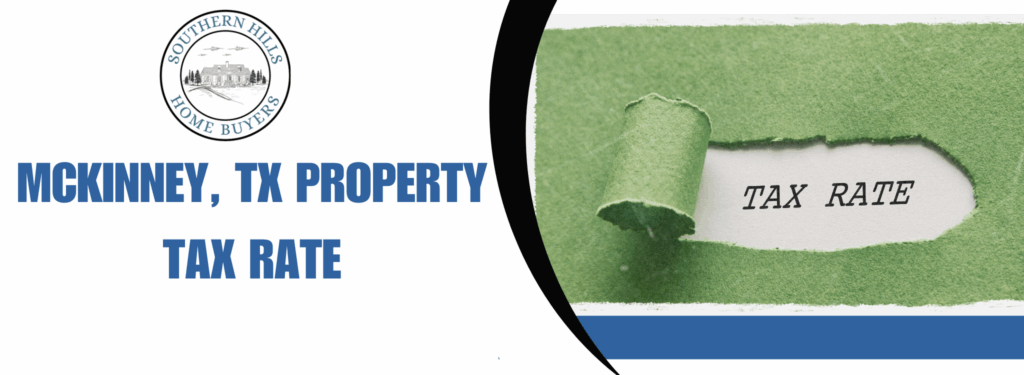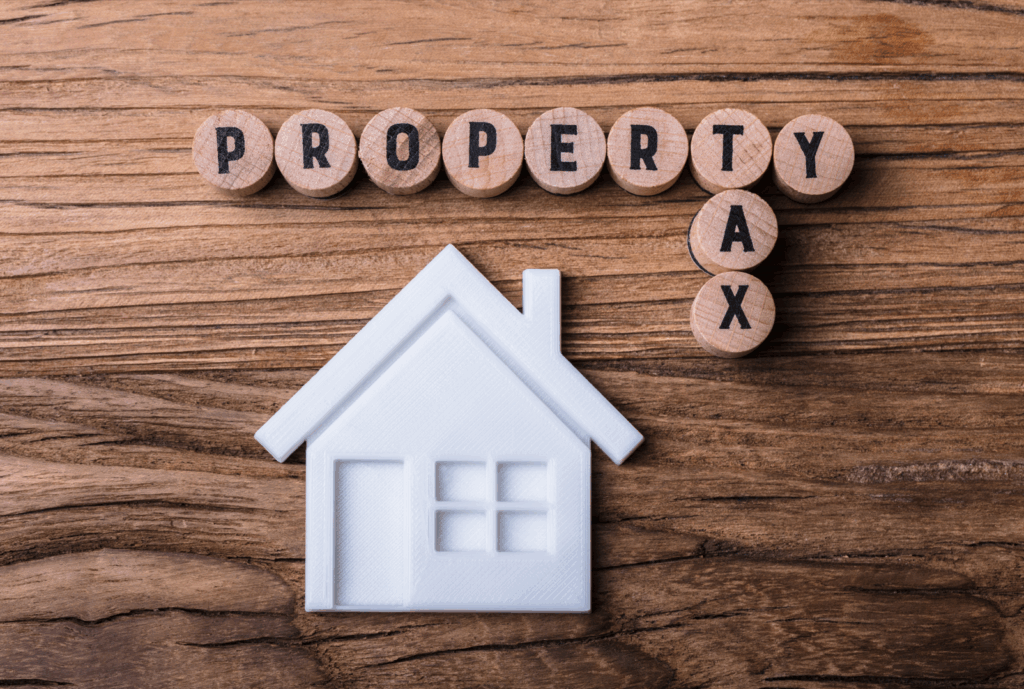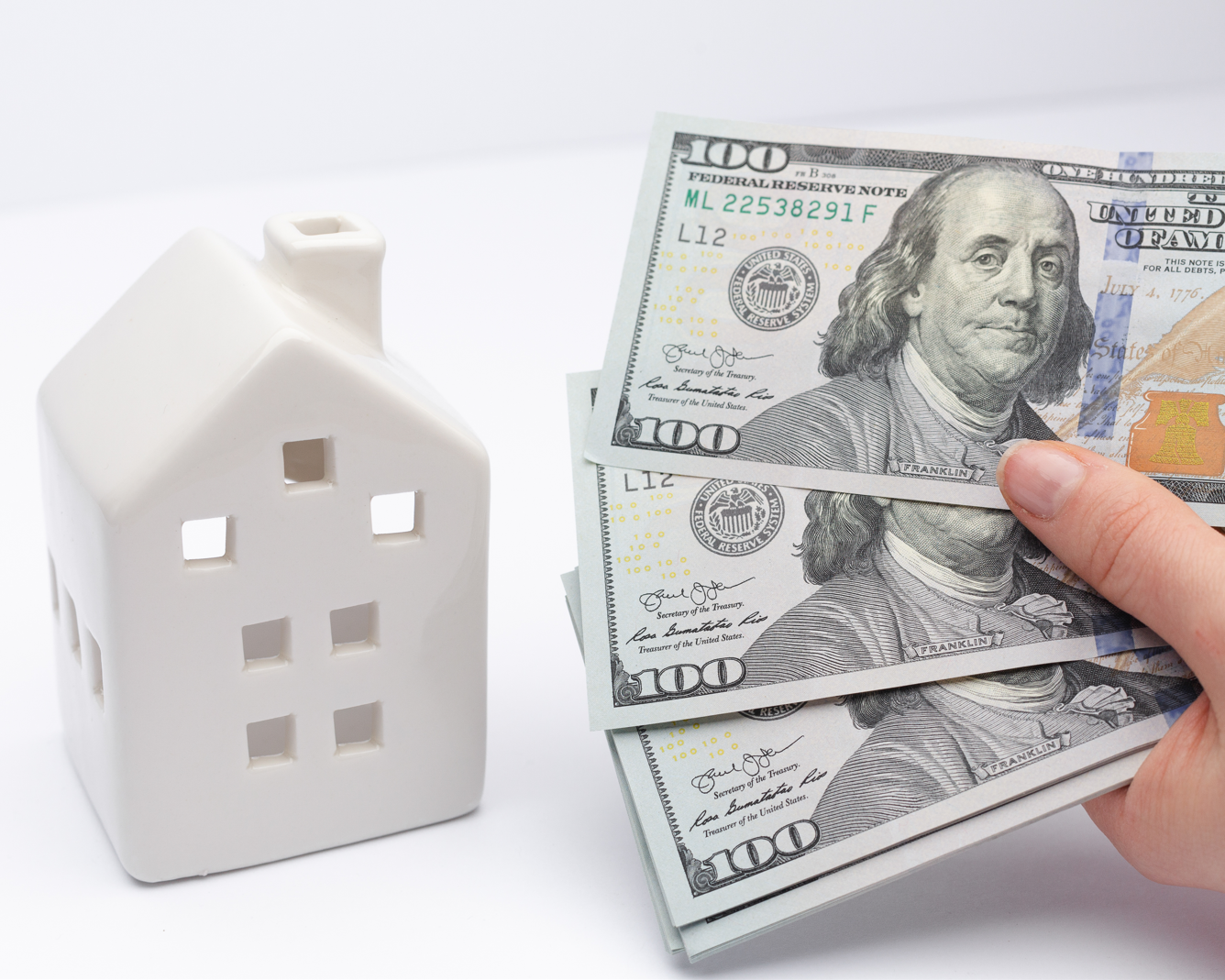
Understanding Property Tax Rates in McKinney, TX
People who want to buy or sell a home in McKinney, TX should know about the property tax rates there. These rates directly affect how much it costs to own a house in this area, which is growing quickly. How much each home is worth on the market every year is used by the Collin County Appraisal District to figure out McKinney’s property taxes.
There are local groups that can change these tax rates, such as school districts, city services, and special improvement districts. They are all used to figure out the final tax bill. The property tax rate is given as a share of the estimated value of the home. From year to year, it can change based on the budget and the ideas that people liked.
Anyone with a bank account should know that these rates can change how much they pay each month for their debt. People who own real estate in McKinney need to know these rates in order to figure out how much money they could make on rental properties and decide whether to buy or sell a home.
Keep up with any changes in Texas laws or the economy that could affect tax assessments. This will help you make smart financial decisions and get the most out of buying property in this busy town.
Key Factors Influencing Mckinney Property Taxes
People in McKinney, TX who own homes or want to buy homes need to know what causes property taxes to go up or down. The Collin Central Appraisal District decides most of the time what a house is worth and how much it should be taxed.

Every year, real estate trends are used to figure out how much a house in this area is worth. People have to pay their taxes, and school districts, city boards, and special districts sometimes decide how much.
Most of the time, these rates are given as a percentage of how much the property is thought to be worth. These kinds of rates can change a lot based on how the community wants to grow, the number of building projects in the area, and the need for money for public services. As the economy moves, like when prices go up or down in the housing market, so do assessments and tax rates.
People who meet the standards can also lower their taxable values by taking homestead or senior deductions. All of these facts help people in McKinney get ready for possible tax bills and know what to do when they are buying or selling a house.
How to Calculate Your Property Tax in McKinney, Texas
When you want to know how much your McKinney, Texas, property tax is, you need to know the different parts that make up the tax rate. The most important thing is how much your land is worth. This is something that the Collin Central Appraisal District does every year.
This number comes from the state of the market and any changes you’ve made to your house. In McKinney, the total property tax rate is made up of separate amounts paid to different groups, like school districts, city functions, and the county.
Your property tax bill is made up of several parts. The total amount is the sum of all the tax rates that are put together. The combined tax rate is shown as a percentage. To get your exact property tax, you need to add the combined tax rate to the home’s estimated value.
Homeowners should also know about deductions that might lower the amount of tax they have to pay. For example, homestead exemptions for people who live in their main home or who are ill or elderly. Property owners and investors in McKinney can better understand their property tax responsibilities if they keep track of these things and read the notices from the appraisal district every year.
Recent Changes and Trends in McKinney Property Tax Rates
In the past few years, McKinney, TX property tax rates have changed and trended in important ways that homeowners and real estate buyers should carefully consider. The city is growing quickly because of more people moving there and more building projects. This means that more public services like schools, better roads, and emergency services are needed.
In turn, these factors have led to changes in property tax rates from time to time. The local government in McKinney has worked hard to find a balance between the need for income and the desire to keep tax rates low, which is important for attracting buyers and investors.
In recent years, property values have gone up across the area, which has caused effective tax rates to go up a little. The city’s appraisal district has worked hard to reevaluate property prices more often, which is more in line with how the market is doing right now.
But McKinney has also put in place exemptions and relief programs, like homestead exemptions and discounts for seniors, to help locals deal with the effects. These factors show how important it is for homeowners and real estate buyers to keep up with the constant changes in McKinney’s property tax laws so they can make the best financial plans. Southern Hills Home Buyers is a local cash home buyer, and we buy Fort Worth homes quickly and fast for cash. If you have any questions regarding selling your house fast for cash, then read the frequently asked questions section.
Comparing McKinney’s Property Tax Rate with Other Texas Cities

People like living in McKinney, Texas, and the real estate market is growing. However, homeowners and real estate buyers need to know about the city’s property tax rates. When you compare McKinney’s property tax rate to those of other Texas cities, it’s clear that while McKinney’s rates are competitive, they can be very different based on where you live in the city.
People often compare McKinney’s property taxes to those in nearby towns like Plano, Frisco, and Allen. Plano may have slightly lower rates because it has a bigger commercial base and an economy that is doing well. Frisco and Allen, on the other hand, may have similar or even higher rates because they are growing quickly and investing in infrastructure.
In Texas as a whole, towns like Austin and Houston may have different tax systems depending on the size of their metropolitan areas and the needs of their residents. Smaller places, on the other hand, may have lower rates because they don’t have as many public service duties.
Because of this, McKinney’s property tax rate is an important factor for potential buyers to consider when weighing the pros and cons of living in a lively community against the costs of the area’s tax policies.
Strategies for Reducing Your Property Tax Bill in Mckinney, TX
People who live in or want to buy a home in McKinney, TX can lower their property taxes in a number of ways. First, you should check the assessment letters from the evaluation district to make sure that the value of your home matches its market value.
You should quickly file a protest with the Collin County Appraisal District to question the value of your home if mistakes are found. You might also want to look into exemptions, such as homestead deductions, which can make a big difference in how much your main home is taxed.
Veterans over 65 or veterans who have been hurt may also be able to get a lot of help if they are qualified. The law and local tax rates can change over time. Knowing these changes can help you figure out how much tax you will have to pay and plan for it.
You might want to hire a professional property tax consultant to help you with tough cases or to get advice on problems of value. You can get your McKinney property taxes lowered if you know these tricks and keep an eye on how much your home is worth.
The Impact of School Districts on Mckinney’s Property Taxes
In McKinney, Texas, the local school districts have a big impact on property tax rates. They are one of the most important factors in figuring out how much homeowners and real estate buyers have to pay in taxes each year. Many families choose where to live based on the schools in the area, so the quality and image of McKinney’s school districts, like McKinney Independent School District (MISD), has a direct effect on property values.

As a result, these districts need a lot of money to keep up with educational standards. Most of that money comes from property taxes. Because of this, areas within school districts with good ratings often have higher property taxes to pay for the necessary investments in school supplies and infrastructure.
This change can affect both people who already live in McKinney and people who are looking to buy or invest in homes there. It is important to understand how changes in school district lines can affect property tax assessments. People who are thinking about investing in real estate or buying a home in McKinney need to know how these school districts affect property taxes in order to make smart choices that will help them reach their financial goals and hopes.
Economic Growth and Its Effect on Property Taxes in McKinney
People in McKinney, TX have seen big changes in their property tax rates as the city’s economy has grown. It affects both people who own homes and people who want to buy homes. As the city continues to grow and bring in new businesses and people, it needs more public services and better facilities.
When the economy gets better, home prices go up, which changes property taxes. Ins estimates go up when the value of a home does. The city government will get more money because of this.
The money is very important because it helps schools, emergency services, and neighborhood projects that help more and more people. People who own their own homes may have to pay more in taxes, even if their income stays the same.
These changes are also felt by real estate buyers who look at the returns they can get on investment homes. When people in McKinney know how economic growth affects property taxes going up, they can decide if they want to buy or hold on to their home in this hot market.
That way, people can better handle the impacts of shifting property taxes on McKinney’s economic growth if they know about these things. We are investor home buyers in Mckinney, Texas and we buy houses fast for cash with no hassle. Don’t just take our word for it—learn why homeowners trust us and see how simple our process is.
Expert Tips for Managing High Property Taxes in McKinney, TX
Homeowners and real estate buyers in McKinney, TX may find it hard to deal with the high property taxes, but there are ways to make things easier. One good thing you can do is check your property’s estimated value often to make sure it’s correct. If you find any mistakes, you should file a protest with the Collin County Appraisal District right away.
Learning about the different exemptions you can get, like the farm or senior citizen exemptions, can also help you save a lot of money on your taxes. Keeping up with changes in local tax rates and taking part in community talks about fiscal policies can also help you figure out what the tax effects will be in the future.
Investors can deal with high property taxes by carefully planning changes to their properties and thinking about how much rent they could bring in. Talking to a local real estate agent who knows how the market works and the laws in McKinney can help you even more with your tax plan and getting the most out of your property.
Helpful McKinney Blog Articles
- Selling Your McKinney Home Without A Realtor
- Affordable Housing Options In McKinney, TX: Best Neighborhoods To Consider
- Fascinating Facts About Real Estate And Housing In McKinney, Tx
- Is Mckinney, Tx A Safe Place To Buy A Home? Exploring Housing And Safety Insights
- Explore McKinney, TX: Enjoy Free Real Estate Tours And Community Events
- Top-rated Residential Property Managers In Mckinney, Tx For Exceptional Real Estate Services
- Exploring The Top And Bottom Neighborhoods For Real Estate In Mckinney, Tx
- A Guide To Kid-friendly Attractions In McKinney, TX

| LEVIES | TAX BASED | TAX PAYMENT | TAX RATE | COLLIN COUNTY, TX | COLLIN COUNTY, TEXAS |
| TARRANT | TARRANT COUNTY, TEXAS | TARRANT COUNTY | MARKET VALUES | HOMEOWNERSHIP | MEDIAN HOME PRICE |
| OWNWELL | MEDIAN | U.S. | ASSESSOR | PRICE | DALLAS |
| DEDUCTIONS | MARKET DATA | CALCULATOR | CALCULATION |

